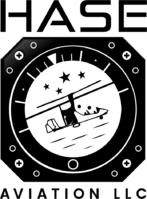SPORT Pilot Certificate:
1. Be at least 17 years of age.
2. Be able to read, write, and converse fluently in English.
3. Be in good health as evidenced by holding a U.S. Driver’s license.
4. Receive and log ground training from an authorized instructor or complete a home-study course.
5. Pass a knowledge test with a score of 70% or better. The sport pilot knowledge test consists of 40 multiple-choice questions selected from all of the related questions in the FAA’s sport pilot knowledge test bank.
6. Receive flight instruction and demonstrate skill (see 14 CFR 61.311).
7. Accumulate appropriate flight experience (see 14 CFR 61.313). Receive a minimum of 20 hr. of flight instruction and solo flight time.
8. Successfully complete a practical (flight) test, which will be given as a final exam by an FAA inspector or designated pilot examiner; it will be conducted as specified in the FAA’s Sport Pilot Practical Test Standards.
Flight Requirements:
20 hours which includes:
15 hours dual with a 2 hour cross county flight
5 hours solo with one cross country flight of at least 50nm
(See FAA regulations for complete list of requirements)
Private Pilot Certificate:
1. Be at least 17 years of age.
2. Be able to read, write, and converse fluently in English.
3. Obtain at least a third-class FAA medical certificate.
4. Receive and log ground training from an authorized instructor or complete a home-study course.
5. Pass a knowledge test with a score of 70% or better. The private pilot knowledge test consists of 60 multiple-choice questions selected from all of the related questions in the FAA’s private pilot knowledge test bank.
6. Accumulate appropriate flight experience (see 14 CFR 61.109). Receive a total of 40 hr. of flight instruction and solo flight time.
7. Receive flight instruction and demonstrate skill (see 14 CFR 61.107).
8. Successfully complete a practical (flight) test, which will be given as a final exam by an FAA inspector or designated pilot examiner; it will be conducted as specified in the FAA’s Private Pilot Practical Test Standards.
Flight Requirements:
40 hours which must includes:
20 hours dual with 3 hours of nighttime and 3 hours of cross country training
10 hours solo
(See FAA regulations for complete list of requirements)
Commercial Pilot Certificate:
1. Be at least 18 years of age.
2. Be able to read, write, and converse fluently in English.
3. Hold at least a current third-class FAA medical certificate. Later, if your flying requires a commercial pilot certificate, you must hold a second-class medical certificate.
4. Hold an instrument rating. A commercial pilot is presumed to have an instrument rating. If not, his/her commercial pilot certificate will be endorsed with a prohibition against carrying passengers for hire on day VFR flights beyond 50 NM or at night.
5. Receive and log ground training from an authorized instructor or complete a home-study course.
6. Pass a knowledge test with a score of 70% or better. The commercial pilot knowledge test consists of 100 multiple-choice questions selected from the-related questions in the FAA’s commercial pilot test bank.
7. Accumulate appropriate flight experience and instruction (see 14 CFR 61.129). A total of 250 hours of flight time is required.
8. Successfully complete a practical (flight) test, which will be given as a final exam by an FAA inspector or designated pilot examiner; it will be conducted as specified in the FAA’s Commercial Pilot Practical Test Standards.
Gyroplane Add-On Rating Training Requirements.
An existing sport or private pilot adding a sport pilot category and class rating (14 CFR 61.321), may operate a gyroplane after receiving training from a qualified gyroplane CFI on all the items listed in 14 CFR 61.309 and 14 CFR 61.311. The CFI gives you an endorsement stating that you meet the requirements of that part. A second, different CFI conducts a proficiency check on the same knowledge and proficiency requirements. Upon successful demonstration of knowledge and flight proficiency, the second CFI gives you an endorsement and completes form 8710-11. The endorsement allows the pilot to exercise the privileges of the additional category and class of Sport Pilot or Private Pilot. The pilot receives a new certificate in the mail. No minimum hours, no solo requirements, no medical, no check ride, and no knowledge test.
Most pilots can complete this add-on category/class training in 10-15 flight hours.
